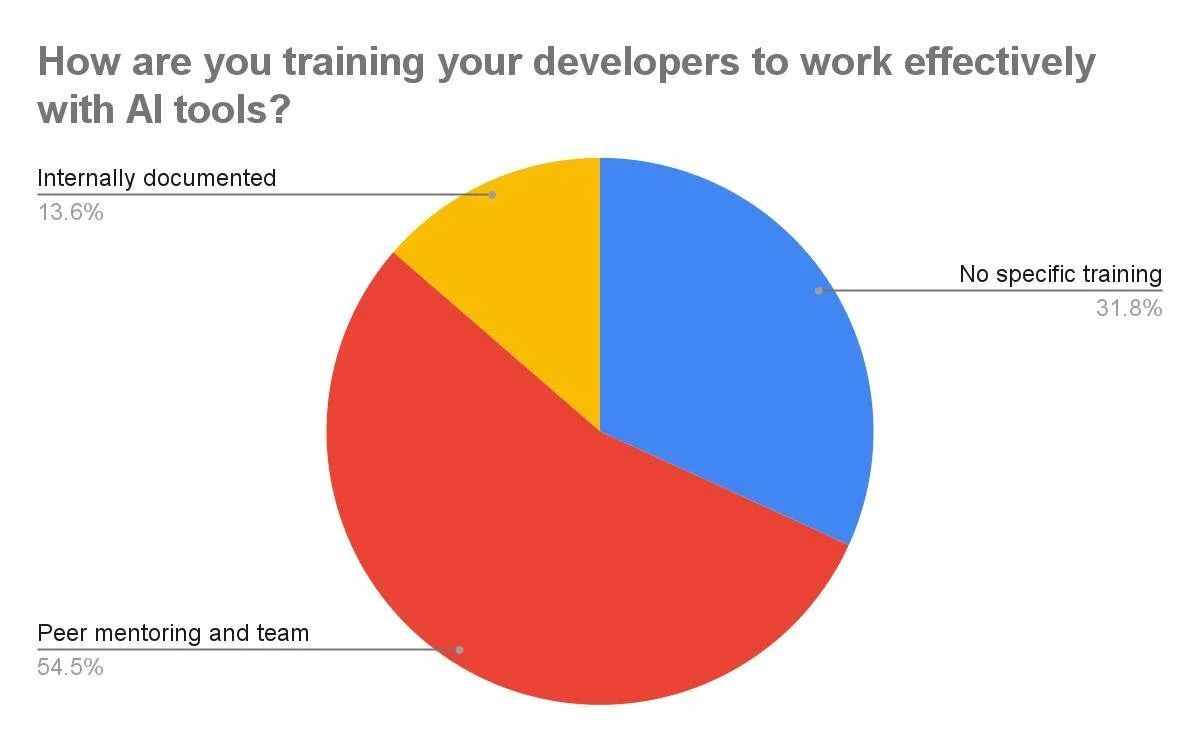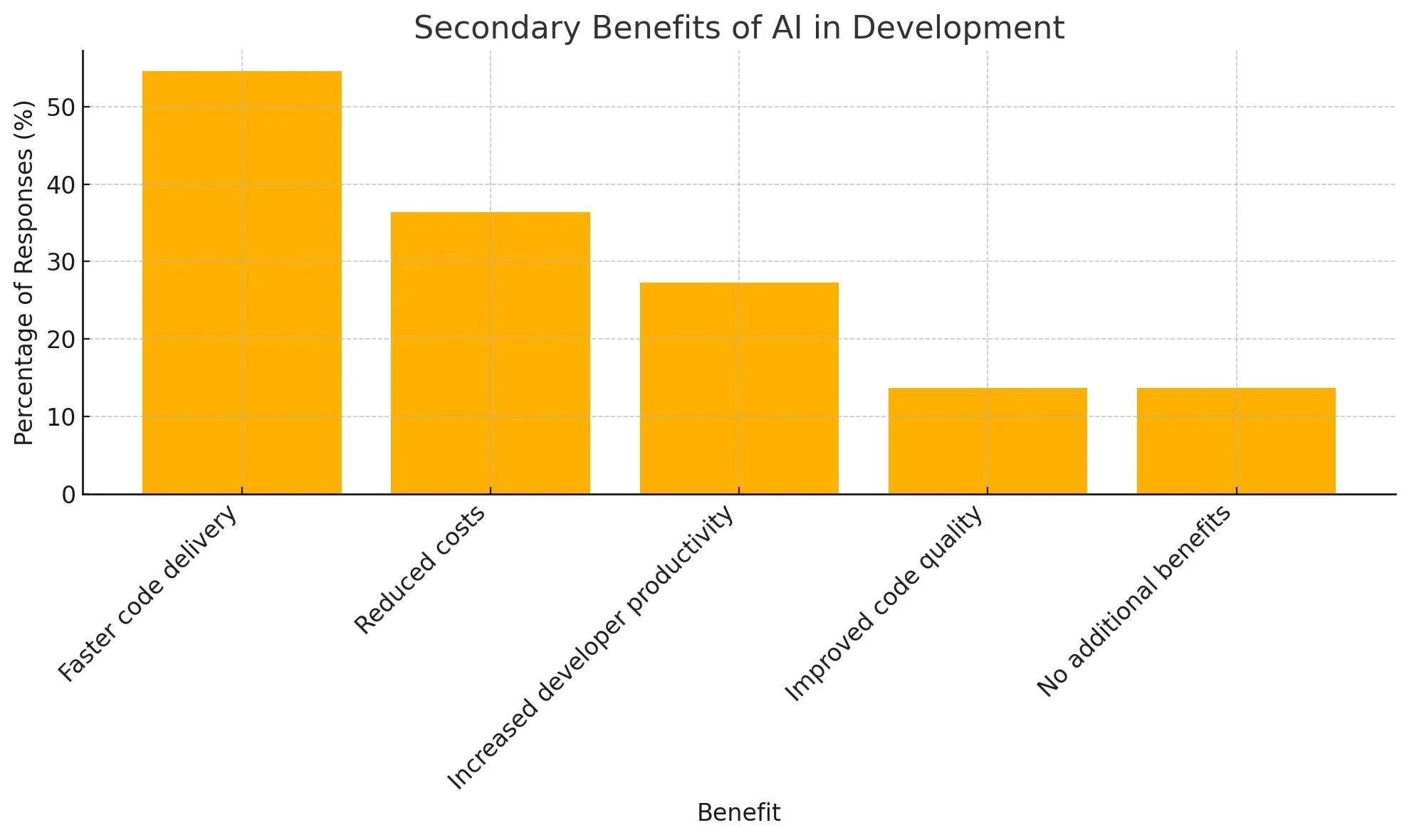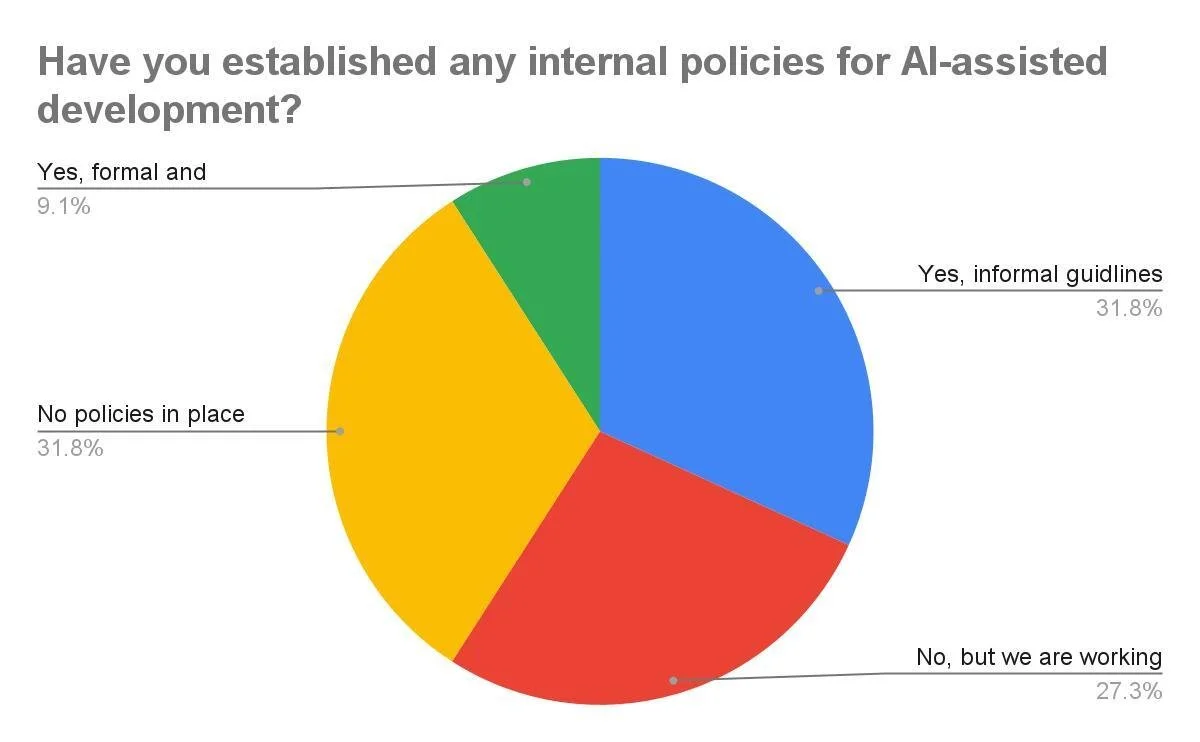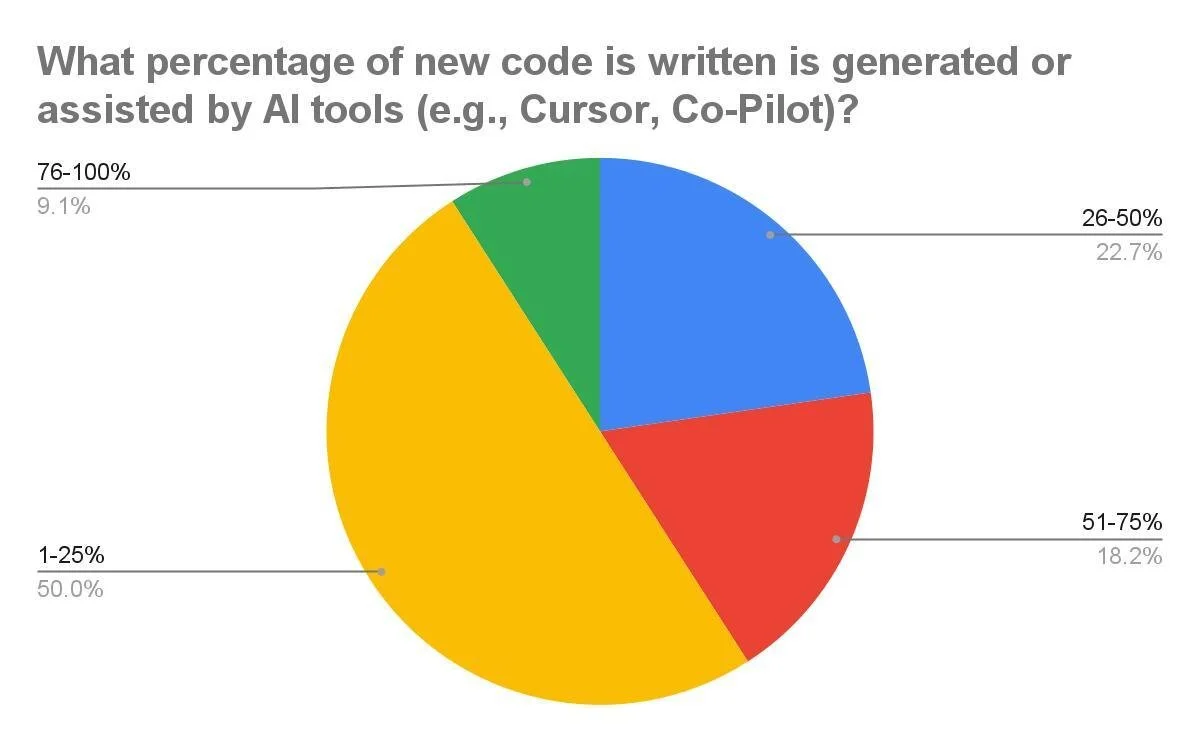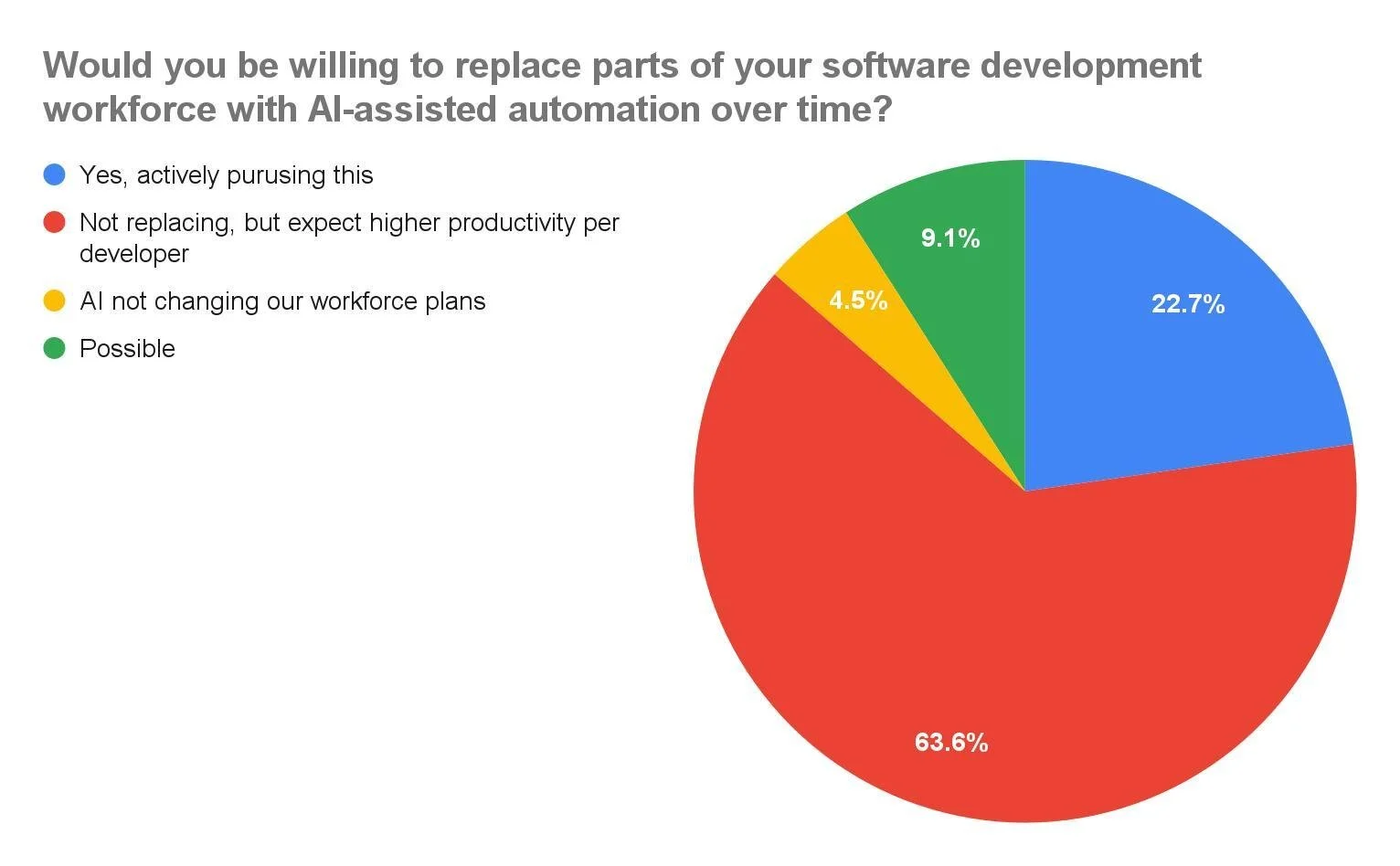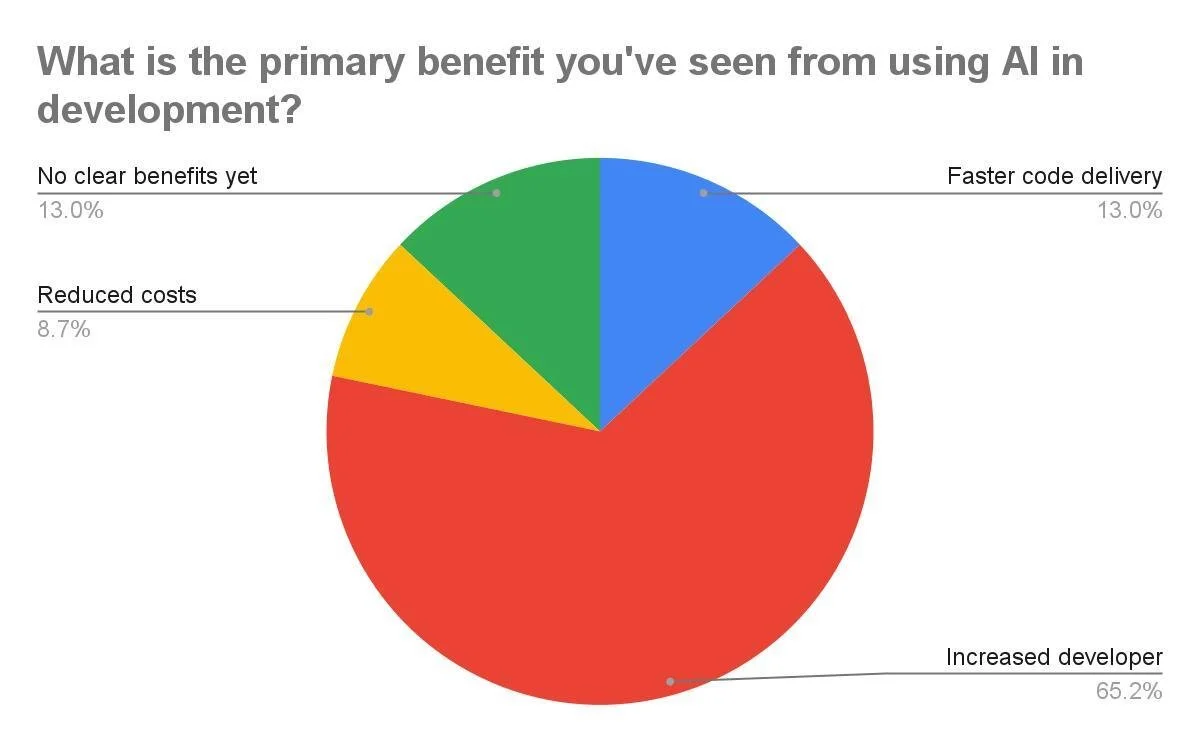Aperiam Insights Q2 2025: AI Use in Software Development
At Aperiam, we regularly examine emerging technologies shaping the future of advertising and software. In this quarter’s Aperiam Insights, we explore how adtech startups are integrating artificial intelligence (AI) into their software development processes.
Our key takeaway: while AI adoption is near-universal across this group, its implementation is still in early stages. Adtech companies are embracing AI as a foundational tool, but are still developing consistent practices, training approaches, and workforce strategies to harness its full potential. AI will have a dramatic impact on this group, quickly if the current rate of adoption holds.
1) Ubiquitous Adoption, Limited Maturity
100% of respondents report using AI in their development workflows. Of these, nearly 60% use it extensively, with the remainder applying it in limited areas. This confirms AI’s transition from an experimental concept to an operational mainstay.
However, the actual depth of use is still early. Most respondents estimate AI contributes to just 25% or less of new code generation. That said, tools like GitHub Copilot and Cursor are rapidly evolving, and companies anticipate significantly expanding AI’s role in their development stacks in the next year.
Testing/QA, requirements gathering, and design/architecture also received substantial mentions, suggesting that AI is being integrated both upstream and downstream in the process - not just in coding assistance. Deployment and monitoring had slightly less traction but still a notable presence, showing expansion into DevOps.
While code generation is clearly the most mature use case, upstream and downstream adoption is also underway - particularly in test automation and architecture design. This indicates a strong foundation for deeper AI integration across the full software lifecycle.
However, most are using AI to generate 25% or less of the code they are creating.
The tools for generating code are new in the market and evolving fast, so this rapid initial adoption and lower overall application of the tools suggests that the Adtech companies will continue to increase the percentage of code they generate using AI and overall AI will play a massive role in the future.
2) Tangible Productivity Gains
The primary benefits cited from AI adoption are increased developer productivity, faster code delivery & reduced costs.
While a few companies indicated they had not yet seen clear benefits - likely due to early implementation - most are realizing multi-dimensional value in efficiency and speed.
When asked about secondary benefits, respondents reinforced the primary findings. Faster code delivery and reduced costs were the top two, followed by improved code quality and increased productivity. This broad range of benefits suggests that AI is producing multi-dimensional value across efficiency, output, and quality.
3) Governance & Training Lag Behind
Governance structures remain underdeveloped. Only 9% of companies have formal AI development policies. Roughly 1/3 operate under informal guidelines. Another 1/3 have no policies in place at all.
Training is similarly ad hoc. The most common approach is peer mentoring and collaboration, with few companies offering structured training or internal documentation. This gap underscores how quickly AI has been adopted-outpacing companies’ ability to codify best practices.
4) Workforce Strategy: Augmentation Over Replacement
While AI may enhance developer output, respondents don’t anticipate large-scale staff reductions. Most companies see AI as a means of boosting productivity per developer, not replacing talent. While we do not think companies will downsize their current engineering teams due to the use of AI, we do think they will add fewer developers in the coming years than they may have originally planned, but get higher productivity from those in place.
Conclusion: A Transformative Inflection Point
The data reveals an industry at a critical inflection point. AI has rapidly moved from experimentation to embedded use. Adtech startups are not only early adopters - they are now leading the charge in integrating AI into core engineering processes.
Yet, the maturity curve is steep. Most teams are still navigating how to structure policy, train teams, and optimize AI’s potential. As tools evolve and institutional knowledge deepens, we expect dramatic gains in productivity, delivery speed, and software quality over the next 12 months.
AI won’t just reshape how adtech companies write code - it will reshape the teams that build the future.

